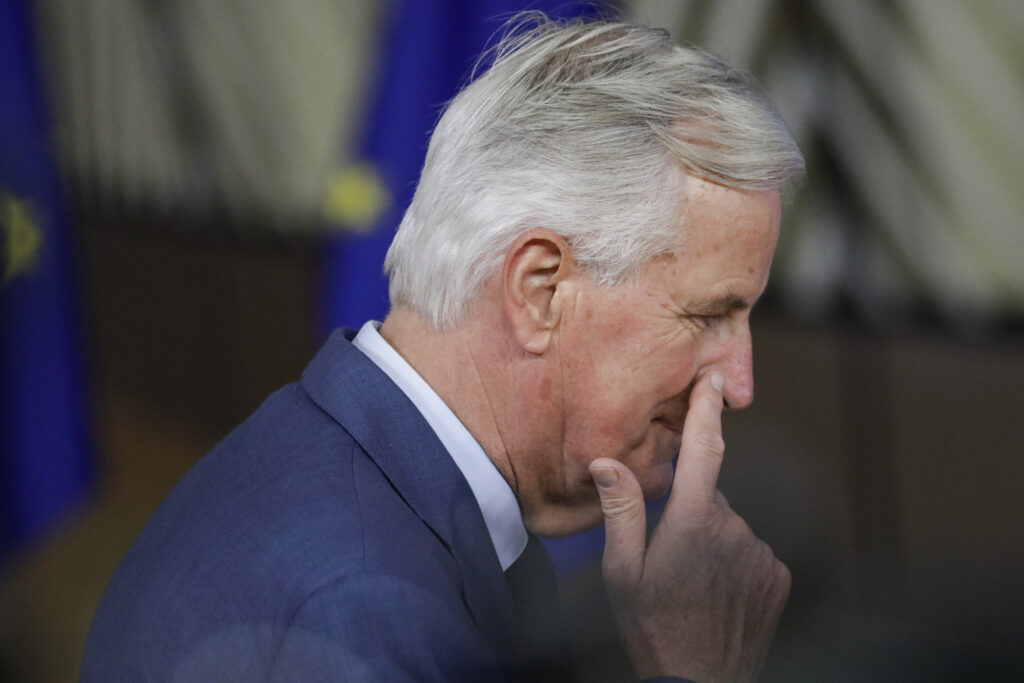French MPs passed a motion no confidence in the government, which has been in place for only three months, on Wednesday night – increasing political and economic uncertainty.
After three and a half hours of heated debate in a packed chamber, 331 MPs decided to topple the Prime Minister Michel Barnier, surpassing the required 289 votes. It makes him the shortest-serving French PM.
"Due to the no confidence motion, the Prime Minister must submit the government’s resignation to the President of the Republic," announced National Assembly President Yaël Braun-Pivet from the speaker’s seat.
The French Presidency informed AFP that this would occur on Thursday at 10:00.
Just back from a state visit to Saudi Arabia, President Macron, currently polling low, must now appoint a new Prime Minister. His team announced that he would address the French public at 20:00 on Thursday.
The motion of censure was initiated by left-wing parliamentarians and backed by the far-right National Rally party and its allies, who united over budgetary issues as France grapples with significant debt.
'Historic day'
Immediately, the radical left-wing party La France Insoumise (LFI) demanded the President’s resignation. LFI leader in the National Assembly, Mathilde Panot, called for "Emmanuel Macron to go" and requested "early presidential elections."
"Today is a historic day. For the second time under the Fifth Republic and the first time in 62 years, a government has been overthrown," she declared.
Elected in 2017 and re-elected in 2022, Macron, whose term lasts until 2027, pre-emptively dismissed calls for his resignation as "political fiction." He asserted on Tuesday that he intends to serve his term "until the last second."
Far-right leader Marine Le Pen appeared more measured in her initial reaction, stating that she would allow the future head of government to "work" on "co-constructing a budget acceptable for all." She added, "I do not call for Emmanuel Macron’s resignation."
Before the vote, Barnier spoke did not try to dissuade MPs from voting for a lack of confidence in his leadership, but reminded that France spends €60 billion annually on debt interest, more than on defence or higher education.
"You can say what you want, but this is the reality. Trust me: This reality will not disappear with the magic of a no confidence motion," he warned.
This censure comes after months of crisis, triggered by the surprise dissolution of the National Assembly by the President following his party’s defeat to the far-right in European elections in June.
Quick replacement?
On Thursday, the President of the French National Assembly, Yaël Braun-Pivet, called on Emmanuel Macron to appoint a Prime Minister "quickly" to replace Barnier because "we must not allow the situation to remain unresolved."
"There needs to be a new government quickly so that it can resume budget discussions, since there too, there are several options on the table," explained the Macronist president of the Assembly on France Inter.
Among these options, she defended the continuation of "the parliamentary shuttle on the Social Security funding bill which was not adopted with the adoption of the motion of no confidence."
With the agreement of the group chairmen, an ‘agreement’ could also be reached on the State budget "on a minimum basis".
"We could very well imagine making a commitment to examine an amending budget in the first quarter of 2025". In the meantime, "we could give France a budget before the end of the year, there's still time," insisted Yaël Braun-Pivet.
With regard to the choice of the new Prime Minister the President should "receive all the political groups". While no group holds even a relative majority in the Assembly, the left-wing alliance New Popular Front won the most seats.
Barnier was appointed as Prime Minister by Macron despite coming from the conservative Republicans party, who only won 46 out of the 533 seats.

